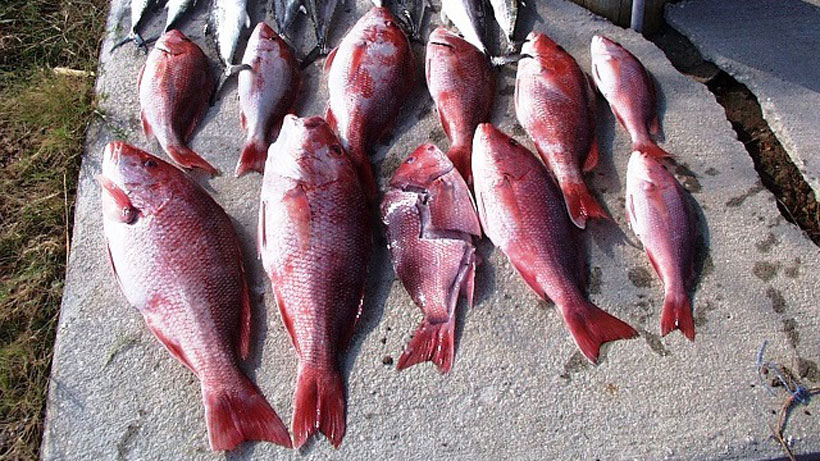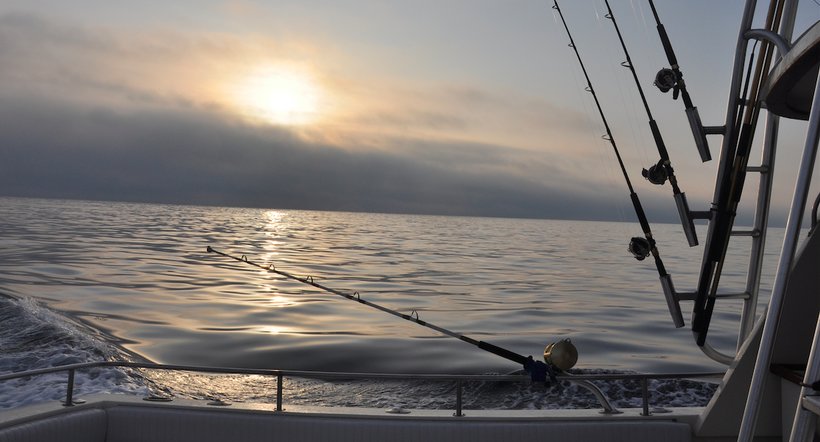
If you are like me, you probably enjoy spending some of your free time fishing. We are blessed to live in a place so close to one of our world’s great natural treasures: the Gulf.
While some of us enjoy fishing as a hobby or for sport, others depend on the industry as their source of income or way of life. The fishing industry is a huge component of our coastal economy touching many areas including hotels, gas stations, bait and tackle shops, restaurants, condos, boat dealers, charter boat companies, and much more. All told, the value of only recreational fisheries for saltwater areas in Alabama is $797 million. The full economic impact certainly even larger.
That is why it is so frustrating the federal government continues to mismanage our Red Snapper stock in the Gulf. This year, the federal Red Snapper season was only nine days, and next year it could be even worse. The federal regulators consistently underestimate the amount of Red Snapper in the Gulf and overestimate the number of Red Snapper caught each year.
As a member of the House Natural Resources Committee, I recently had the opportunity to question Mr. Samuel Rauch, a bureaucrat from the National Marine Fisheries Service, about the federal government’s mismanagement of the Red Snapper fishery in the Gulf. As you may know, the National Marine Fisheries Service is a division of the larger National Oceanic and Atmospheric Administration (NOAA).

My question to Mr. Rauch was very simple: despite having a budget of over $900 million dollars, why can’t your agency better manage the Red Snapper fishery in the Gulf? Mr. Rauch struggled to answer that question or adequately explain the federal government’s inability to get an accurate count of the Red Snapper stock in the Gulf.
The most apparent reason the federal regulators can’t get the stock assessment right is because they don’t sample for Red Snapper on reefs. That is absurd considering Red Snapper are reef fish. Mr. Rauch said they can’t sample along reefs because their “trolling nets” get caught on the reefs.
Here is the problem with that excuse: Just earlier this year, I went on a scientific fishing trip with Dr. Bob Shipp from the University of South Alabama. In order to get an accurate count, Dr. Shipp actually had hi-definition cameras mounted on submersible vehicles to look at the actual reefs. Dr. Shipp and South Alabama do great work, but there budget is significantly less than the $900 million given to NOAA. I just don’t understand how a major federal agency is using trolling nets to find a fish that you can only find on a reef while Dr. Ship and South Alabama are doing much better research with fewer resources.
NOAA also overestimates the number of Red Snapper caught each year. Alabama Marine Resources Division Director Chris Blankenship testified at the hearing about this very issue. Despite NOAA estimating that 1,000,041 pounds of Red Snapper were landed (or caught) last year, Director Blankenship estimated the number was actually 418,000 pounds. That is a remarkable difference.
NOAA depends solely on unreliable telephone surveys to count the number of landings while Alabama uses a much more complete and sound system, including cameras at major boat ramps and a mandatory reporting system. Once again, with less money the state is able to do a better job.
I have advocated for a solution that would solve this problem once and for all. First, we need to shift the data collection and stock assessment responsibilities from NOAA and give those responsibilities to the Gulf State Marine Fisheries Commission. My solution also calls for the repeal of the inflexible quotas for the commercial and recreational sectors of the fishery and extending state water boundaries to nine nautical miles Gulf-wide.
This issue concerns us all, whether you fish or not, because it really speaks directly to the larger problem of government incompetence. This issue highlights the problems caused by a bloated, unaccountable federal government.
Trust me: it isn’t just Red Snapper in the Gulf that could be better managed by the states or private citizens. I will continue fighting for our Red Snapper season, but also standing up to the culture of “big government” that plagues Washington.
Bradley Byrne represents Alabama’s 1st Congressional District in the U.S. House of Representatives











